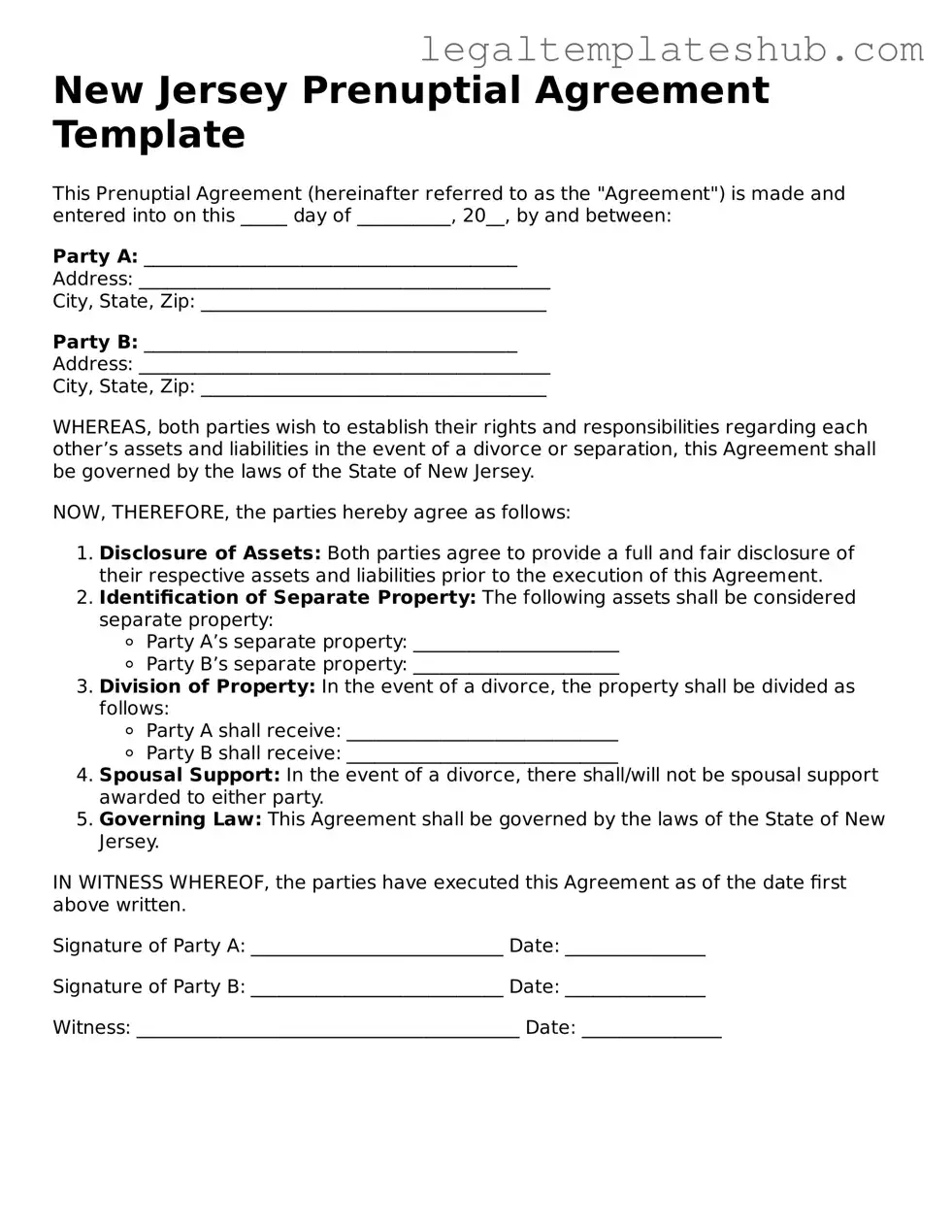Printable Prenuptial Agreement Document for New Jersey
A New Jersey Prenuptial Agreement form is a legal document that outlines the financial and personal rights of each spouse in the event of a divorce or separation. This agreement serves to protect individual assets and clarify responsibilities, ensuring both parties have a clear understanding of their financial arrangement before marriage. To take the next step in securing your future, consider filling out the form by clicking the button below.
Access Editor
